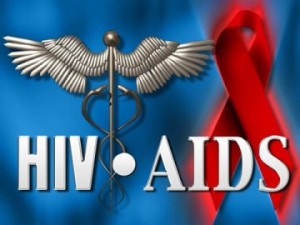An estimated 1.8 million Nigerian children have been orphaned by HIV/AIDS since the first case of the pandemic was identified in the country in 1986.
Hajia Salimot Lawal, the Coordinator of HIV/AIDS in the Kwara Ministry of Health, stated this on Thursday in Omu-Aran.
She spoke at a five-day capacity building workshop for some 100 health workers in the state.
“Nigeria remains among the top five countries in the world in terms of HIV/AIDS burden.
“More than 1.8 million Nigerian children have been orphaned since the first reported case in the country in 1986,” Lawal said.
The News Agency of Nigeria reports that the workshop was organised to improve the knowledge and skills of the participants in HIV/AIDS testing and counselling.
NAN also reports that participants were drawn from primary and basic health centres in the 16 local government areas of the state.
Lawal said Nigeria had been hit hard by the pandemic with an estimated adult prevalence rate of 4.4 per cent, adding that 3.9 million Nigerians were living with the virus.
She said the scourge had continued in spite of concerted efforts to halt and reverse the spread.
Lawal also said that the workshop was informed by the desire to prepare the participants for the challenges ahead, particularly in testing and counselling.
The idea, she said, was targeted at Prevention of Mother-to-Child Transmission through adequate testing and counselling, to achieve zero-tolerance for HIV/AIDS infections.
She said MTCT accounted for three to 10 per cent of HIV infections in Nigeria, adding, “With the introduction of core MTCT interventions in the developed countries, the rates had fallen to as low as two per cent.
“The entry-point for PMTCT services is through HIV testing of pregnant women attending antenatal care.
“In all settings, HIV testing and counselling should be offered to all pregnant women seeking these services, and service providers should also mobilise them to go for testing.”
She listed the benefits of testing and counselling as reinforcement of safe s*x practices and empowering of HIV-negative pregnant women to remain negative.
Lawal also highlighted part of the challenges facing HIV/AIDS testing and counselling as additional work-load and stress for health care providers.
A participant from Oko-Erin Health Centre in Ilorin, Mrs. Bosede Alabi, said the workshop would nable her to allay the fears of those coming for HIV/AIDS test.
Hajia Salimot Lawal, the Coordinator of HIV/AIDS in the Kwara Ministry of Health, stated this on Thursday in Omu-Aran.
She spoke at a five-day capacity building workshop for some 100 health workers in the state.
“Nigeria remains among the top five countries in the world in terms of HIV/AIDS burden.
“More than 1.8 million Nigerian children have been orphaned since the first reported case in the country in 1986,” Lawal said.
The News Agency of Nigeria reports that the workshop was organised to improve the knowledge and skills of the participants in HIV/AIDS testing and counselling.
NAN also reports that participants were drawn from primary and basic health centres in the 16 local government areas of the state.
Lawal said Nigeria had been hit hard by the pandemic with an estimated adult prevalence rate of 4.4 per cent, adding that 3.9 million Nigerians were living with the virus.
She said the scourge had continued in spite of concerted efforts to halt and reverse the spread.
Lawal also said that the workshop was informed by the desire to prepare the participants for the challenges ahead, particularly in testing and counselling.
The idea, she said, was targeted at Prevention of Mother-to-Child Transmission through adequate testing and counselling, to achieve zero-tolerance for HIV/AIDS infections.
She said MTCT accounted for three to 10 per cent of HIV infections in Nigeria, adding, “With the introduction of core MTCT interventions in the developed countries, the rates had fallen to as low as two per cent.
“The entry-point for PMTCT services is through HIV testing of pregnant women attending antenatal care.
“In all settings, HIV testing and counselling should be offered to all pregnant women seeking these services, and service providers should also mobilise them to go for testing.”
She listed the benefits of testing and counselling as reinforcement of safe s*x practices and empowering of HIV-negative pregnant women to remain negative.
Lawal also highlighted part of the challenges facing HIV/AIDS testing and counselling as additional work-load and stress for health care providers.
A participant from Oko-Erin Health Centre in Ilorin, Mrs. Bosede Alabi, said the workshop would nable her to allay the fears of those coming for HIV/AIDS test.




















